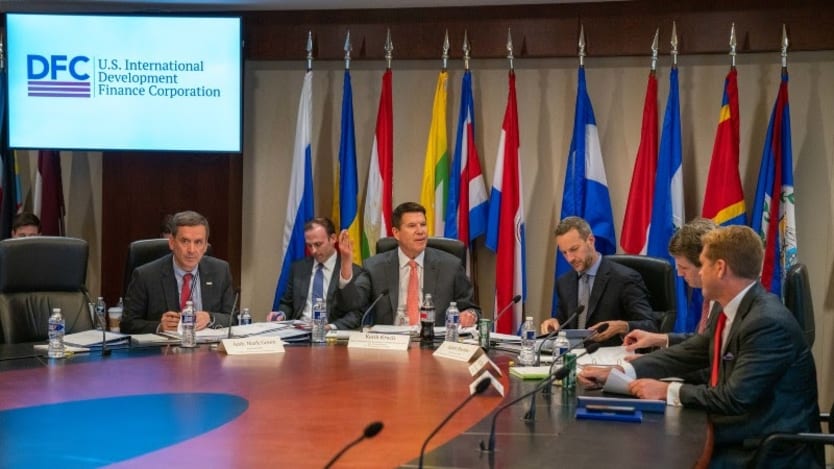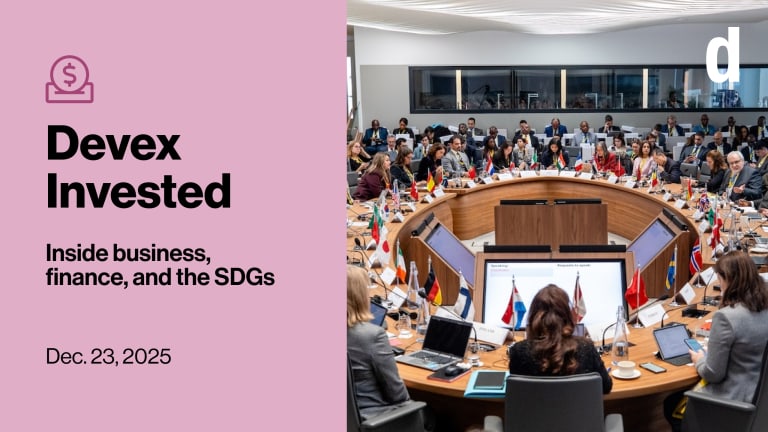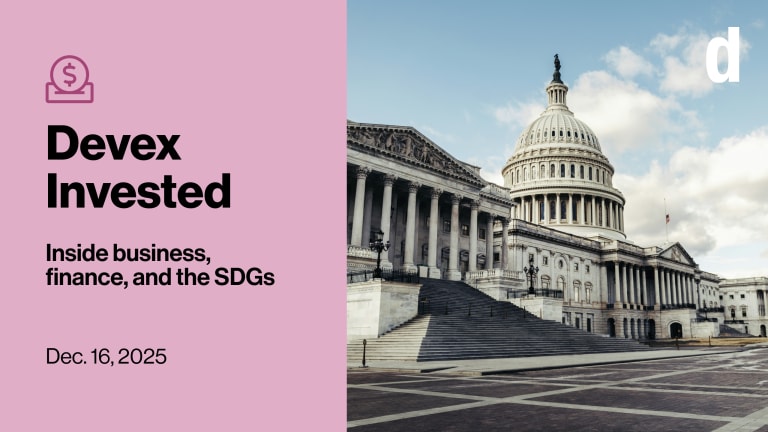
WASHINGTON — After numerous consultations and at least six months of beta testing, the U.S. International Development Finance Corporation on Thursday for the first time made public details about how it is assessing development impact.
The agency has developed a new impact measurement system, Impact Quotient, or IQ, to assess whether a project will receive funding, push companies to have greater development impact, and track whether projects are having the intended impact.
“I do believe it’s a state of the art approach,” DFC CEO Adam Boehler told Devex. “Our mandate is delivering on development and this is an extremely important element in terms of identifying and orienting it.”
IQ replaces the scorecard system that the Overseas Private Investment Corporation, DFC’s predecessor, used to determine which projects it would invest in. There are several key differences: the IQ framework establishes development objectives for each deal, takes into account country context, and weighs the potential negative impact of a project, including environmental or economic factors.
Taking stock of DFC's early months
The U.S. International Development Finance Corporation has been up and running for about six months. But even as the agency announces new investments, it faces criticism over transparency and accountability.
Consultations with more than 50 impact investors, development experts, and others helped inform IQ, particularly through various meetings held in OPIC’s final year. But some in the development community had recently raised concerns about DFC transparency, including that it had not yet publicly released the system it was using to choose projects. Boehler said that it took time to come to this version of IQ, and it needed to be tested, adapted, and approved internally before it was made public.
The IQ system has three key pillars: economic growth, inclusion, and innovation. Within each of those is a number of potential development objectives including job creation, inclusive supply chains, or new financing structures that attract new capital.
A specific project can have multiple development objectives within the same pillar, or across the pillars, and can get additional points for factors such as if a company is more inclusive of women, or if a financial structure helps build a country’s enabling environment. It can also lose points for environmental or governance issues, or if it fails to mitigate risks.
A project coming up for consideration can earn an IQ score of up to 150, with any projects scoring above 112.5 deemed highly developmental. To amass such a score, projects will need to have at least three core development objectives that they are targeting, and likely some other positive bonus points or ancillary goals.
Some in the development community have urged the DFC to explain why specific projects are approved, and they are pushing for more project-level data, which the agency is required to provide by law.
The individual score for specific projects will likely not be made public, but DFC is working to determine how it can share as much useful information as possible, including the development objectives for each project. And DFC officials are quick to say that the score itself is not the most important factor, but rather the process and the system are more important.
“I think of it as a living, breathing thing,” said Boehler, adding that the agency will continue to fine-tune IQ and wants ongoing stakeholder feedback to make sure it reflects changing situations.
“Our mandate is delivering on development and this is an extremely important element in terms of identifying and orienting it.”
— Adam Boehler, CEO, DFCDFC will open a public comment period to get feedback about IQ, a move it is taking voluntarily in the name of transparency, said Andy Hercowitz, DFC chief development officer.
The development of the core impacts or objectives for a project is meant to be a collaborative effort, and the IQ framework is helpful in pushing companies to achieve more development impact, he said. DFC might, for example, recommend that a company improve its policies around the inclusion of women in its workforce and leadership, which could boost its IQ score.
The new system aligns with the International Finance Corporation’s Operating Principles for Impact Measurement and the metrics used almost entirely align with the Global Impact Investing Network’s IRIS+ system.
The team is also working to continue tweaking IQ, and factor in both quantitative and qualitative measures. In some cases it has developed algorithms to help it determine how a project should score on a certain factor, such as for jobs, where it seeks to award points partly based on the number of jobs, but also try to factor in the quality of those jobs, he said.
The new system is a different way of thinking for those working at the agency, one that is more strategic. The economists focused on development impact now help to define development objectives and what success would look like, rather than just collect data and input it into the matrix as they did with OPIC’s system, said Lori Leonard, DFC director of development impact who managed the creation of IQ.
Search for articles
Most Read
- 1
- 2
- 3
- 4
- 5








